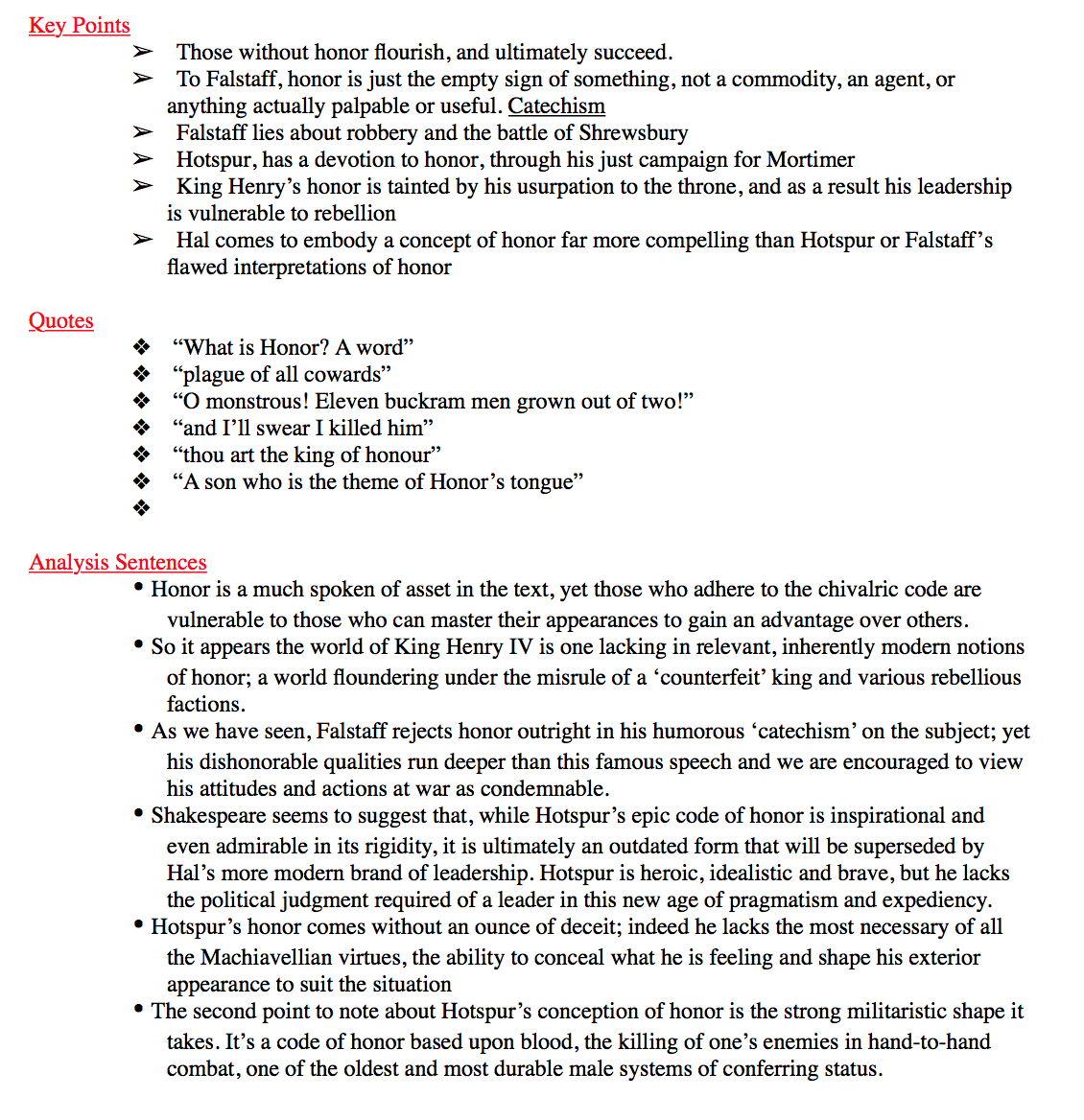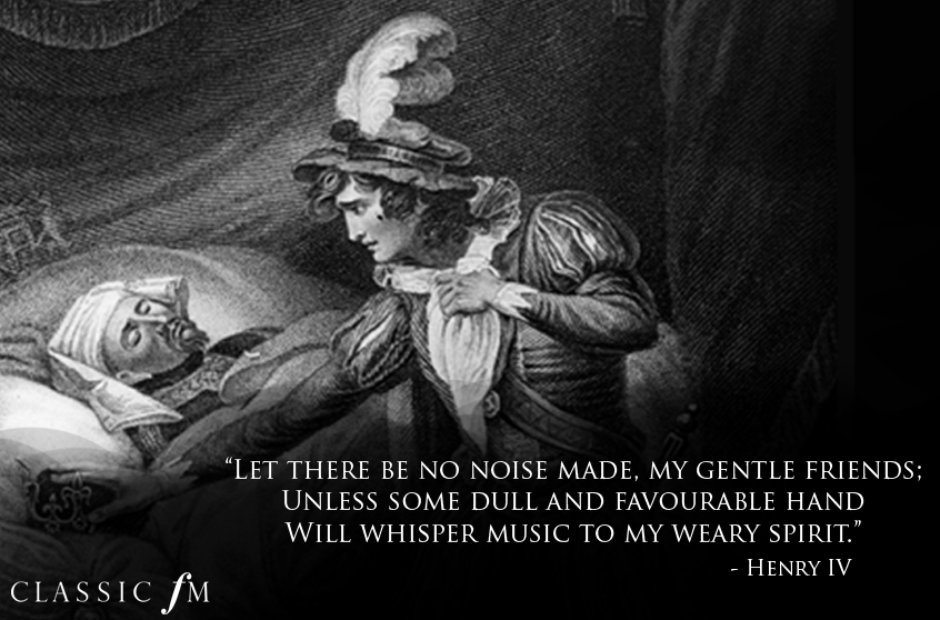
"we shall buy maidenheads as they buy hob-nails" - as I said in an earlier paragraph, complete dismissal insidious dismissal of femininity, suggests a crass reaction that is knee-jerk response to the very real threat of the rebels and the call to duty this represents for him as part of the crown. At A2S4 when Falstaff is going all like 'Mortimer and northumberland are coming shouldn't you be worried Hal, this is like TOTALLY scary' Hal's response is telling - he says: "I can drink with any tinker in his own tongue" - so being able to 'speak' the language of the commoners, to assume the mask of the lower class in order to fit in and to further own motives.īut that doesn't discount the fact that he simultaneously is distancing himself from responsibility at a human level - he also doesn't want to take on the duties that goes with his Princely "heart".
#HENRY IV PART 1 QUOTES CODE#
A case in point is the scene where he ‘so happens’ to be there to save the king’s life at ‘exactly’ the right moment from Douglas and then labours the point home saying essentially ‘look here dad don’t forget I saved your life here…if I wasn’t here you’d be dead.’īut what for me suggests that this Machiavellian ‘biding time’ until the time is right to pay the debt is a too clear-cut way of arguing his character is the sense that he genuinely does not want to leave this tavern lifestyle – beyond the performance which he puts on – together with evidence for a code of true honour/values beyond Douglas’ facetious mask of honour and Falstaff’s complete self-centredness.Īgreed Hal wants commoners to view him as fallible, he is most definitely self-aware about this fact:

After all what we see for the most part is a Prince who has a keen idea of time and when the right time to act is. Hence, the way I see Hal centres around my acceptance that he realises and understands that eventually he will need to throw off this “loose behaviour” (wearing suggests the disingenuous nature of it after all) and pay the “debt”, but that he is biding his time until he is ready to do so. “My reformation, glitt’ring o’er my fault” So with the change I’m talking about for Hal it does not extend to his central Machiavellian qualities. I’d like to define ‘change’ because that’s a contentious word in itself for me at least And if you can't, it'll at least give you an alternate interpretation to discuss But if you can counter these sorts of arguments then your interpretation will be even stronger. I actually think your line of argument has a lot more merit than mine in some instances.

I am in no way trying to shoot you down with all of this. Hal tells us "two paces of the vilest earth" is enough to hold Hotspur's body now (since his spirit is dead) whereas Falstaff is still referred to as fat 'larger than life, even in (supposéd) death'. > though that reminds me, on a Hotspur/Falstaff-related note: compare these two eulogies.

Totes how I'd want to be remembered: 'Well, you're a loss, but ya know, coulda been worse, you lovable tub of lard.' If anything, Hotspur got a more respectful farewell than the man that was supposedly Hal's friend. Firstly, note that the eulogy is in iambic pentametre Hal is "making the shift" to the language of regal formality.īut the actual eulogy itself: "I could have better spar'd a better man./ Death hath not struck so fat a deer to-day/ Though many dearer in this bloody fray."


 0 kommentar(er)
0 kommentar(er)
